While previous seasons of hit HBO reality series We’re Here certainly didn’t shy away from exposing our country’s politically polarized state, the show’s current season begins with palpable tension as new hosts Sasha Velour, Jaida Essence Hall, and Priyanka walk through a small town in Tennessee. (Latrice Royale joins on as a fourth host in a later episode.) What this series so accurately and dramatically depicts is the conflict that so many LGBTQ+ folks in non-metropolitan areas face today: Is living out and proud as one’s true self worth losing personal freedoms, societal acceptance, and possibly even your life? Sadly, for so many in this country right now, this is a daily dilemma.
Still, queer joy and resilience is truly what We’re Here is all about. Despite the hostile opposition shown by many far-right locals, the series also shows a beautiful banding together of brave LGBTQ+ people and their allies — not to mention some fierce and fabulous drag shows! We recently got a chance to catch up with the four new cohosts of We're Here season 4, premiering tonight on Max, and they shared some of their thoughts and feelings about filming the show.
 Greg Endries/HBO
Greg Endries/HBO
There’s been a lot of right-wing backlash against LGBTQ+ people in the U.S. and beyond in recent years. Why is it important to have a show like We’re Here in today’s political climate?
Sasha: The LGBTQ+ community is so diverse. We don’t share the same political opinions or priorities, we don’t have identical life experiences, but we do all share a need for freedom and safety. For many of us in the community, those things are still a long way off, simply because of how we look, act, or identify. Sometimes it’s a relief that the feared “dangers of drag” and “trans agenda” aren’t getting as much right wing press coverage as last year, but the damage of this backlash has already been done, and we need shows like We’re Here to show how these policies and false narratives affected normal people, really damaging people’s lives and livelihoods…and then show how we can join forces to make things better.
What was your experience like growing up as a young queer and/or gender-nonconforming person in your area?
Sasha: I could never imagine getting to live such a big life as a queer person, I had no role models of gender-nonconforming people in the public eye. That being said, I was very lucky that my family was so accepting. My grandmothers both loved gay people and drag queens since they were young and showed me films like Some Like It Hot and La Cage Aux Folles without any shame. That being said, growing up in rural Illinois, being gay and looking queer meant I was always on guard. Outside my home, outside of my safe spaces, homophobic hate and violence was all around, so like all queer people I learned to code shift, to evaluate my surroundings, and to stick with others to survive. Those things are handy skills now, but I wish that queer people wouldn’t have to learn strength through fear.
Did you find yourself relating to any of the experiences of the people featured on the series? And considering how far you’ve come in your own life and career, was it difficult or painful at all to sort of “re-experience” certain things while filming?
Sasha: It was empowering to connect with people who have chosen to stay in places that aren’t as friendly to LGBTQ+ people. These are real heroes, sometimes the most visible queer people in the area, role models for those around them, engaged in daily struggles for existence and acceptance. In so many ways, these drag kids are already the embodiment of everything drag needs to be and more. All we have to do is give them the spotlight, encourage them to show off what they got, and they soar to new heights. It was inspiring, and a reminder of what drag is supposed to be about.
 Latrice, Sasha, and Priyanka share a laugh during one of the more joyful moments of We're Here season 4.Greg Endries/HBO
Latrice, Sasha, and Priyanka share a laugh during one of the more joyful moments of We're Here season 4.Greg Endries/HBO
Without giving away any spoilers, were there any particular moments during filming that brought you a lot of joy or satisfaction?
Sasha: All the best moments are spoilers of course! But I will say that filming this show gave me opportunities to join forces with some of the smartest queens in the business — particularly Priyanka, Latrice, and Jaida — and stand up to opposition, to voices of discrimination together. There’s satisfaction in getting to respond to the kinds of hate we often only experience online, but to do it in person. It illuminates how much the backlash is based on myth and fear, with no real experiences or knowledge. And then the moments of joy come after, when we get to lift each other up and remind each other to laugh! This season will have a bit of everything!
Aside from We’re Here, are there any current or upcoming projects that you want to share with The Advocate's readers?
Sasha: My new book, The Big Reveal, is out — a manifesto about drag and queer liberation hidden inside a memoir! I’m currently on a world tour of the stage show inspired by the book, and just finished sold-out shows at the London Palladium and the Paris Folies Bergeres! Then my next show, in collaboration with director Moisés Kaufmann, will premiere in August at LaJolla Playhouse. And of course you can always find me in New York at “NightGowns” every month! @sashavelour

There’s been a lot of right-wing backlash against LGBTQ+ people in the U.S. and beyond in recent years. Why is it important to have a show like We’re Here in today’s political climate?
Jaida: The story of LGBTQIA+ in this country has always been one that hasn’t received the voice that it deserves. For so long our stories have been told through people who often times don’t even know people within the community. Thankfully with We’re Here we cover our community through the eyes of queer people and the rainbow of people that make it. It’s important that with all this backlash, most of which is misinformation, that we have shows that allow people to really see us, who were are, how we live, how we love. Seeing us and knowing us is how people also see that this hate and legislation is really just wrong.
What was your experience like growing up as a young queer and/or gender-nonconforming person in your area?
Jaida: Growing up in my community, I felt like I stuck out like a sore thumb, a beautiful sore thumb, but one nonetheless. There were so many things about me — my walk, my talk, and my interests — that made people just assume I was queer. There were a lot of times where I was met with negative energy, and for so long, I didn’t even know what it meant to be gay. So for a long time I almost never really had to even fully deal with it. As I grew up, I started to realize how much coming to terms with who I was really meant to me. I was able to come out to family and friends, and thankfully, I had support. However, for so many others in my community it wasn’t the same story, and it made me see how important community and chosen family is.
Did you find yourself relating to any of the experiences of the people featured on the series? And considering how far you’ve come in your own life and career, was it difficult or painful at all to sort of “re-experience” certain things while filming?
Jaida: There was a particular moment where we visited city hall… I have to admit, sitting in on the meeting was a really hard thing to do. Being a Black queer person I’ve experienced so many times where I’ve had to just stand there and be a punching bag to people’s words. After a while you just become really tired of it, or numb to it. That time in the city hall meeting really was just difficult.
 Jaida, Priyanka, and Sasha sit through a particularly tense and uncomfortable city hall meeting. Greg Endries/HBO
Jaida, Priyanka, and Sasha sit through a particularly tense and uncomfortable city hall meeting. Greg Endries/HBO
Without giving away any spoilers, was there any particular moments during filming that brought you a lot of joy or satisfaction?
Jaida: I think every moment that I was able to share with my drag children brought me so much joy. Not just being there in the moment, but even thinking back I smile. I think about how much we shared with each other, the laughs and all. Even in the moments that might have been tough, it’s beautiful knowing what is going to be on the other side of the experience. I cannot thank them enough for opening up their hearts to me.
Aside from We’re Here, are there any current or upcoming projects that you want to share with The Advocate's readers?
Jaida: This summer, at the end of June/start of July through the rest of the year, I will be back in Las Vegas at the Flamingo Hotel for Rupaul’s Drag Race Live! with stunning new looks and a brand new number. I have an incredibly, ridiculous good time on the podcast Hall And Closet with my RuPaul’s Drag Race season 12 sister and Miss Congeniality, Heidi N Closet. We’re currently on season 3 and you can listen wherever you stream your podcast as well as YouTube. @jaidaehall
 Greg Endries/HBO
Greg Endries/HBO
There’s been a lot of right-wing backlash against LGBTQ+ people in the U.S. and beyond in recent years. Why is it important to have a show like We’re Here in today’s political climate?
Latrice: Because drag queens and trans people are specifically being targeted by the opposition, I think personalizing these stories shows people how ridiculous the argument really is. As hosts of the show, we are literally “Queens in the Trenches” having tough conversations with people that we know hate us. We are trying to dispel the misinformation that is being spewed across the airwaves to people who are scared and ignorant. Sometimes even queer folks in major metropolitan areas, where it is more accepted, forget how intense the struggle is for people in places like Murfreesboro, Tennessee, or Bartlesville, Oklahoma. So it’s incredibly important that the entire LGBTQIA+ community come together and use our voices this election year.
What was your experience like growing up as a young queer and/or gender-nonconforming person in your area?
Latrice: Growing up in Compton [California] was rough for anyone, no matter how you identified. But especially if you had a little sugar in your tank like I did. When I was a kid, we didn’t have all the language we do today. I was always my mother’s “special child,” even though I didn’t really know what that meant until I was grown. My mother did everything she could to protect me, but there were really only two paths for boys around me at that time — gangs or military. And I was clearly not going down either of those roads. So my brothers and neighbors always tried to “toughen me up” by “forcing me to be a man.” But they were really just abusing me, something else I didn’t really fully understand until I was grown. My family is incredibly supportive now, and we have done a lot of healing in the past ten years or so. It was a long journey, but so worth it to have my family back.
Did you find yourself relating to any of the experiences of the people featured on the series? And considering how far you’ve come in your own life and career, was it difficult or painful at all to sort of “re-experience” certain things while filming?
Latrice: I relate to almost every story on the show in one way or another. That’s the point and beauty of the experience. These stories are ALL of our stories, and I’m so proud to get to help tell them. And, of course, it is painful at times to relive or remember my own past traumas. But, my skin has thickened to be able to cope in stressful situations due to my life experience and the passion I have to make sure that voices like mine can be heard. That far outweighs any fear I might have. As you’ll see in the show, the hatred and fear is real even today. So I can’t live in my past. I’m trying to listen to people in the present so we can shape a better future for ourselves together.
 Bradford, a Tennessee musician, gets in drag in efforts to be a better ally to his children and community.Greg Endries/HBO
Bradford, a Tennessee musician, gets in drag in efforts to be a better ally to his children and community.Greg Endries/HBO
Without giving away any spoilers, was there any particular moments during filming that brought you a lot of joy or satisfaction?
Latrice: It’s funny that you’d use that word, “JOY.” Because that’s the theme of my final performance. Not to give too much away, but you KNOW I have to give HBO the FULL Royale experience. So I did what I do best, I took the children LITERALLY to church in a full, old school, production number just like when I started drag in South Florida. Having the space and support to combine my passions of drag and color guard in the final production is definitely a career highlight and I can’t wait for audiences to see what I prepared for them.
Aside from We’re Here, are there any current or upcoming projects that you want to share with The Advocate's readers?
Latrice: Well, right now I’m preparing to sing with the Denver Gay Men’s Chorus, Hugh Panaro and John McDaniel. So, I’m making sure my vocals are all in shape to be working with such amazing Broadway-level talent. Otherwise, I’ll be enjoying most of my summer in Las Vegas in a 3-month residency in the RuPaul’s Drag Race Live! show at the Flamingo Hotel, and WOWPresentsPlus is running Drag Race Live UNTUCKED this year. We filmed that last year, and I’m very excited to be returning to the Vegas stage with my Drag Race sisters. Plus I have some very exciting voice-over work that’s coming out later this year that will be something very different than the fans have ever seen from me. @latriceroyale
 Greg Endries/HBO
Greg Endries/HBO
There’s been a lot of right-wing backlash against LGBTQ+ people in the U.S. and beyond in recent years. Why is it important to have a show like We’re Here in today’s political climate?
Priyanka: Mainstream media picking and choosing what we’re exposed to is such a big problem. We only feel the urgency if the news tells us, or if we see it on TikTok. In Canada, they banned the sharing of news online so we see no headlines. It’s only basically what our algorithms want to show us. With We’re Here being on HBO with a fresh new cast to make some noise, it becomes its own form of news by making sure people are still aware of the struggles and issues queer people face on a day-to-day basis. I also know that online everything feels zero to 100 all the time, with a show like We’re Here you get to ease into the experience of a queer person that lives in America. You get to see them as humans, not news headlines.
What was your experience like growing up as a young queer and/or gender-nonconforming person in your area?
Priyanka: OH! We’re in therapy today! The experience was very weird for me. I thought it was normal to be in the closet, have a wife, and hook up with men on the side. I didn’t think that there would be anything wrong with it! Especially at a young age when everyone I watched on TV was a straight, white person. I always felt like something was different about me but I chalked it up to having a big personality. I was born this way, so I felt like my hands were tied. I am one of four brothers, so my parents had other distractions while I silently found myself. Now when I look back to that time and realize how suppressed my sexuality was, and how I thought that it was normal, it makes me very sad. It should never be normal to be in the closet, or normal to cheat on your spouse because society won’t accept you. It should be normal to just be you!
 Latrice, Sasha, and Priyanka feeling their country oats in We're Here season 4.Greg Endries/HBO
Latrice, Sasha, and Priyanka feeling their country oats in We're Here season 4.Greg Endries/HBO
Did you find yourself relating to any of the experiences of the people featured on the series? And considering how far you’ve come in your own life and career, was it difficult or painful at all to sort of “re-experience” certain things while filming?
Priyanka: OH YES. Everything is triggering when filming a show like We’re Here. I count myself so lucky to be so out and proud. When you meet the amazing drag daughters of Oklahoma and Tennessee — it’s shocking. A lot of the situations feel like you’re looking at yourself in a mirror. Although it’s hard and you can’t really ever prepare for your past traumas to cross the border into the U.S. and meet you in Tulsa, Oklahoma — it’s a good feeling to know your struggles can help make someone else’s that much easier.
Without giving away any spoilers, was there any particular moments during filming that brought you a lot of joy or satisfaction?
Priyanka: So many great moments. Overall, the amount of LAUGHS we had is so apparent. Jaida, Sasha, Latrice and I spent so much time together and you really get to see us all act a fool. It’s so so so fun to watch and unique to this new season. One moment I’m very excited about is in Oklahoma, when we come face-to-face with a very conservative person who agreed to sit down with us. I could not believe the words coming out of their mouth and neither will you!
Aside from We’re Here, are there any current or upcoming projects that you want to share with The Advocate’s readers?
Priyanka: Back by popular demand… my debut album comes out in August and I’m going on tour!!!!!!! It’s going to be major pop girl takeover with music that will make you feel like you’re the hottest person ever. I hope you like it! @thequeenpriyanka
 Greg Endries/HBO
Greg Endries/HBO


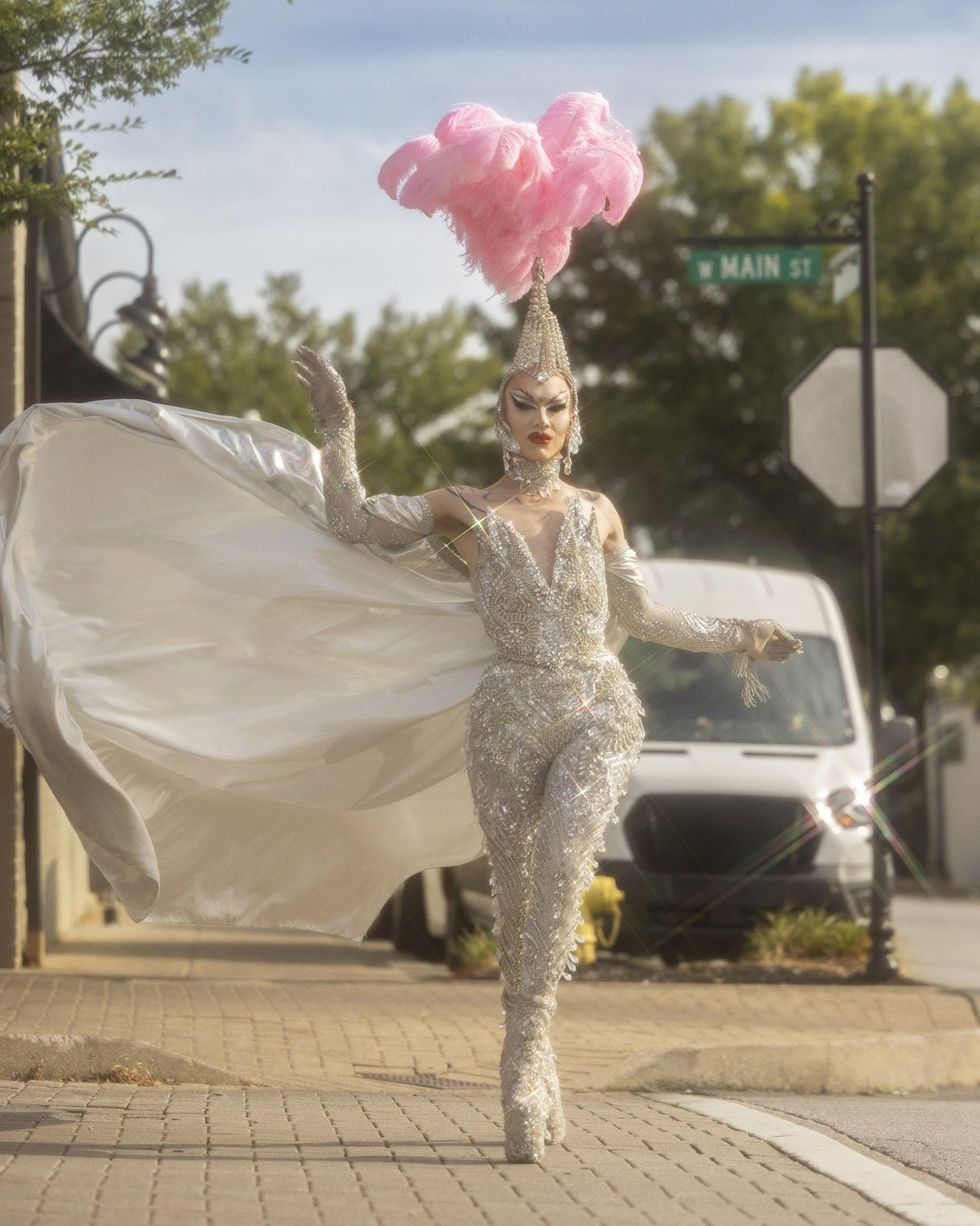 Greg Endries/HBO
Greg Endries/HBO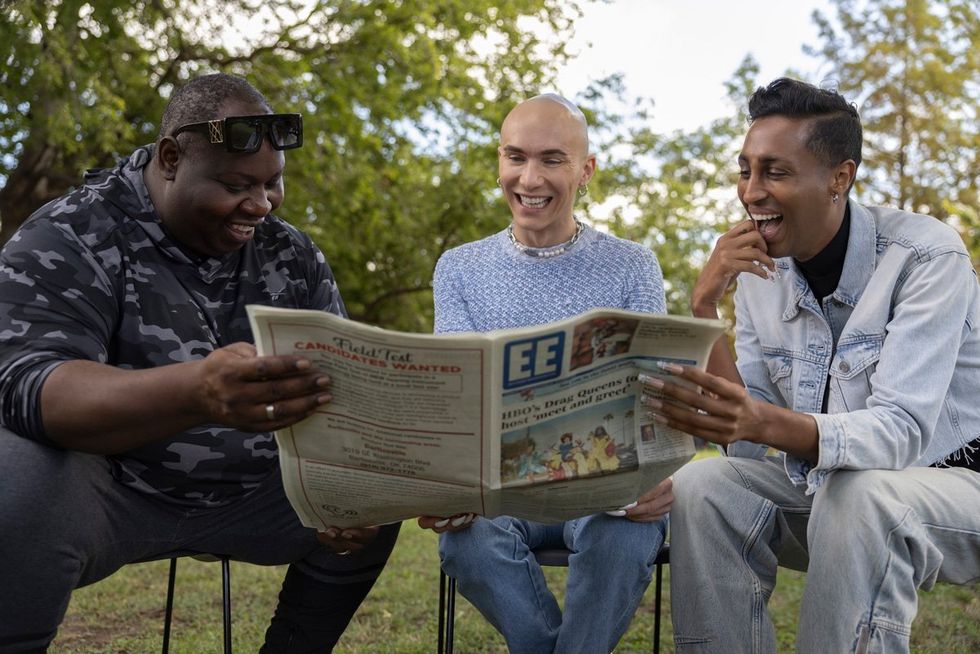 Latrice, Sasha, and Priyanka share a laugh during one of the more joyful moments of We're Here season 4.Greg Endries/HBO
Latrice, Sasha, and Priyanka share a laugh during one of the more joyful moments of We're Here season 4.Greg Endries/HBO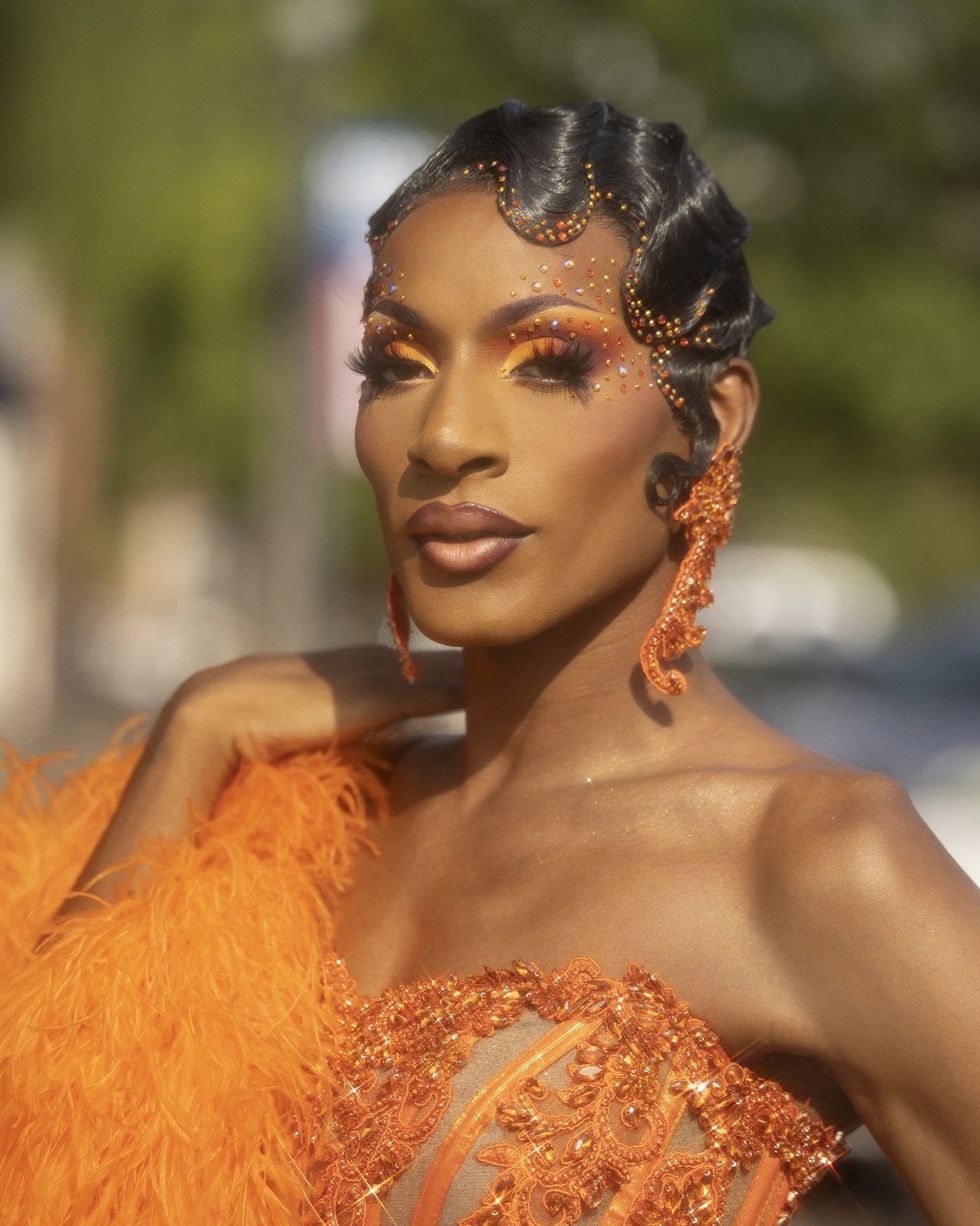
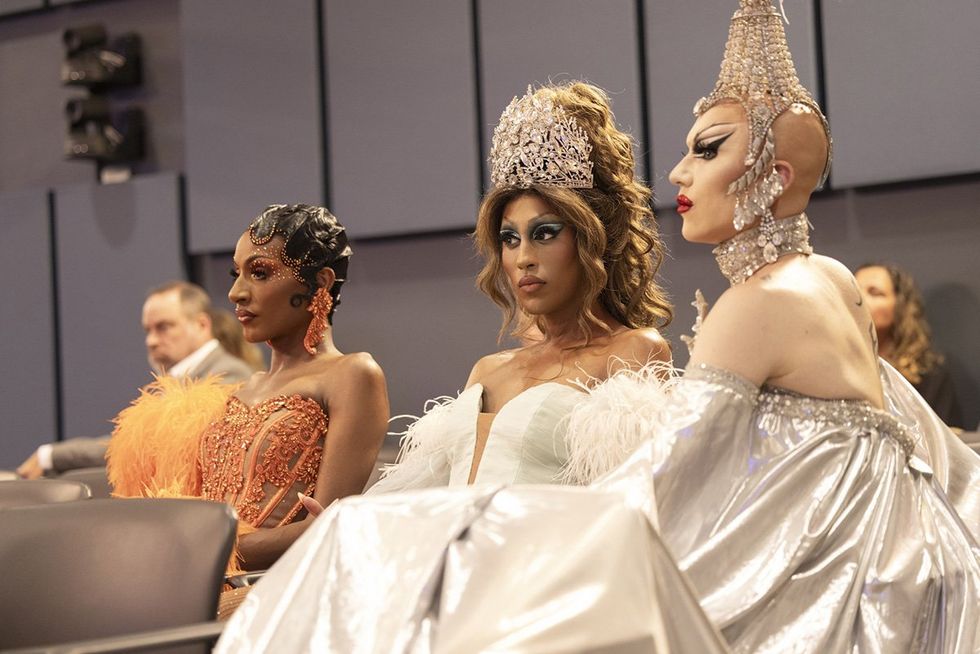 Jaida, Priyanka, and Sasha sit through a particularly tense and uncomfortable city hall meeting. Greg Endries/HBO
Jaida, Priyanka, and Sasha sit through a particularly tense and uncomfortable city hall meeting. Greg Endries/HBO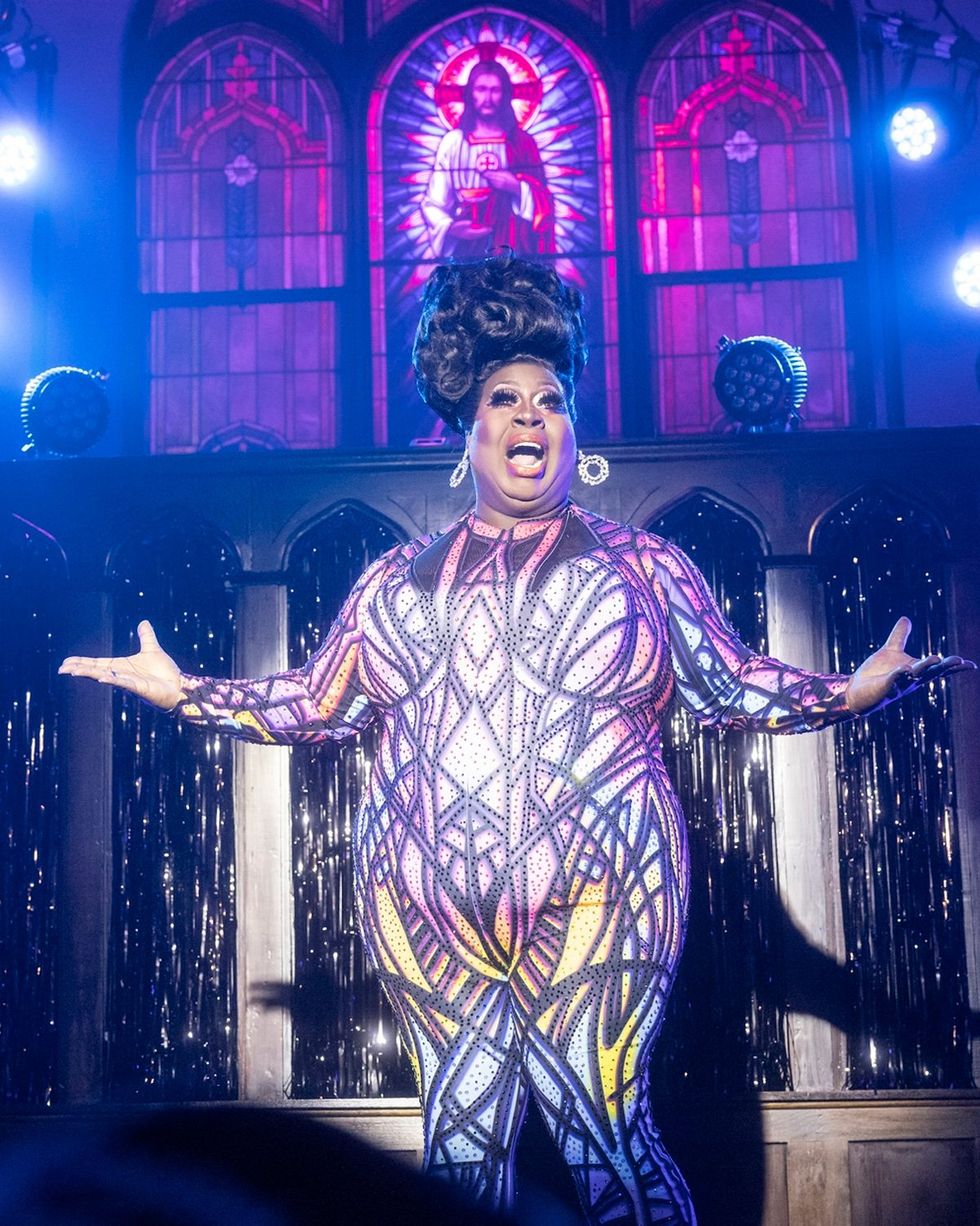 Greg Endries/HBO
Greg Endries/HBO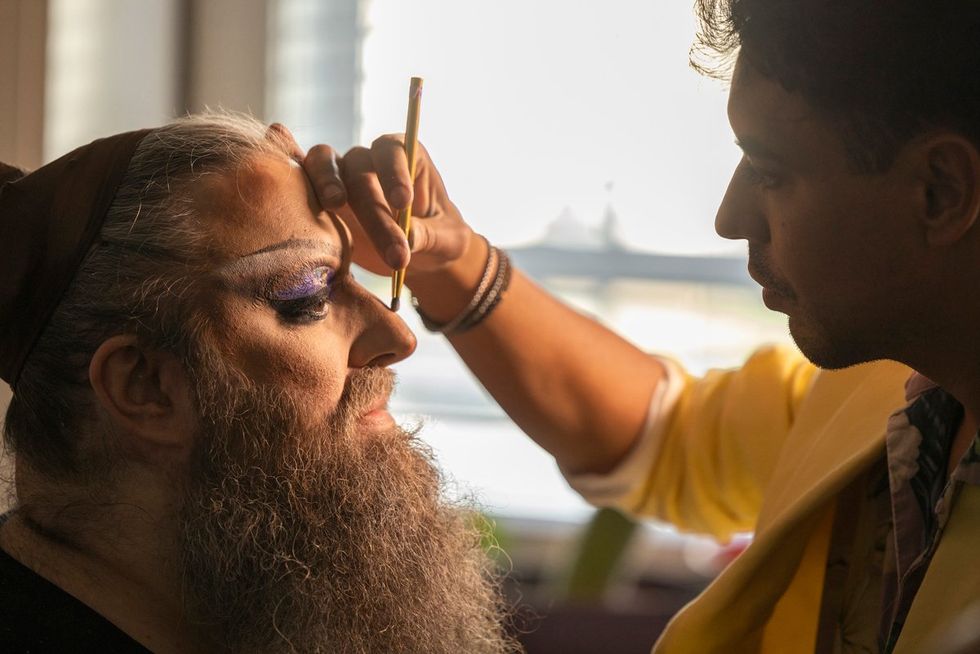 Bradford, a Tennessee musician, gets in drag in efforts to be a better ally to his children and community.Greg Endries/HBO
Bradford, a Tennessee musician, gets in drag in efforts to be a better ally to his children and community.Greg Endries/HBO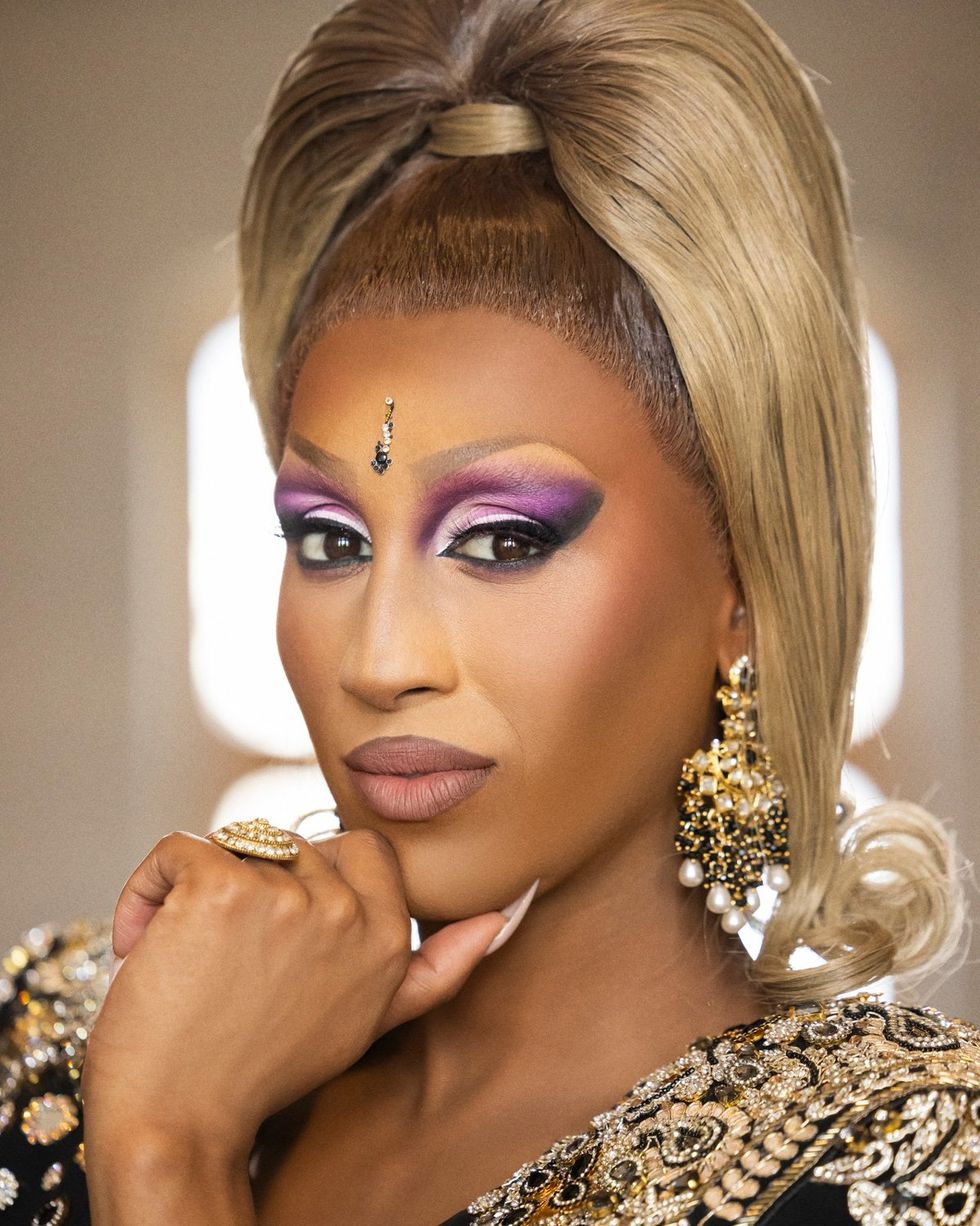 Greg Endries/HBO
Greg Endries/HBO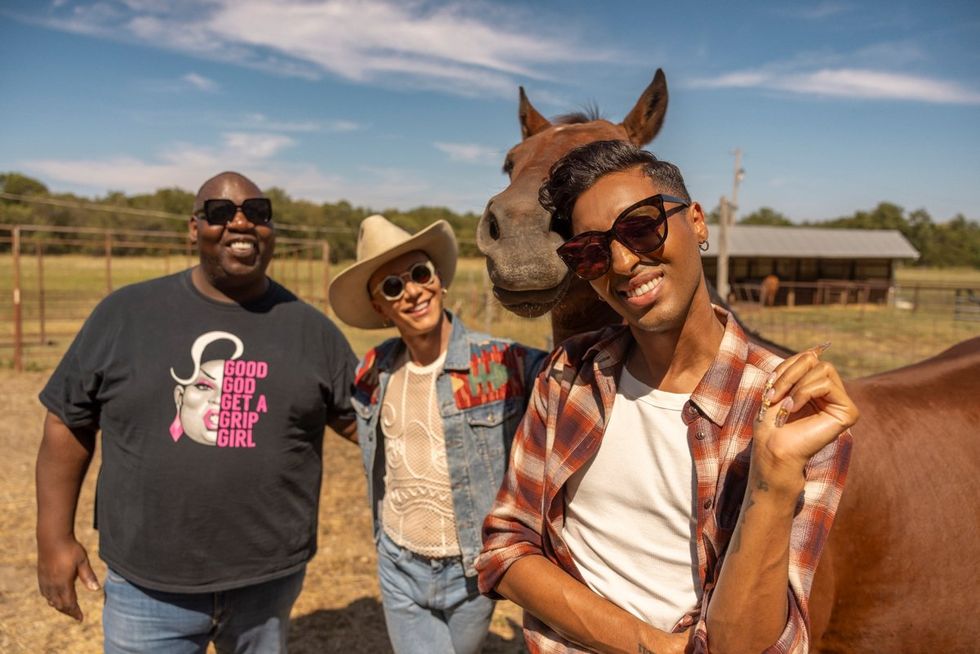 Latrice, Sasha, and Priyanka feeling their country oats in We're Here season 4.Greg Endries/HBO
Latrice, Sasha, and Priyanka feeling their country oats in We're Here season 4.Greg Endries/HBO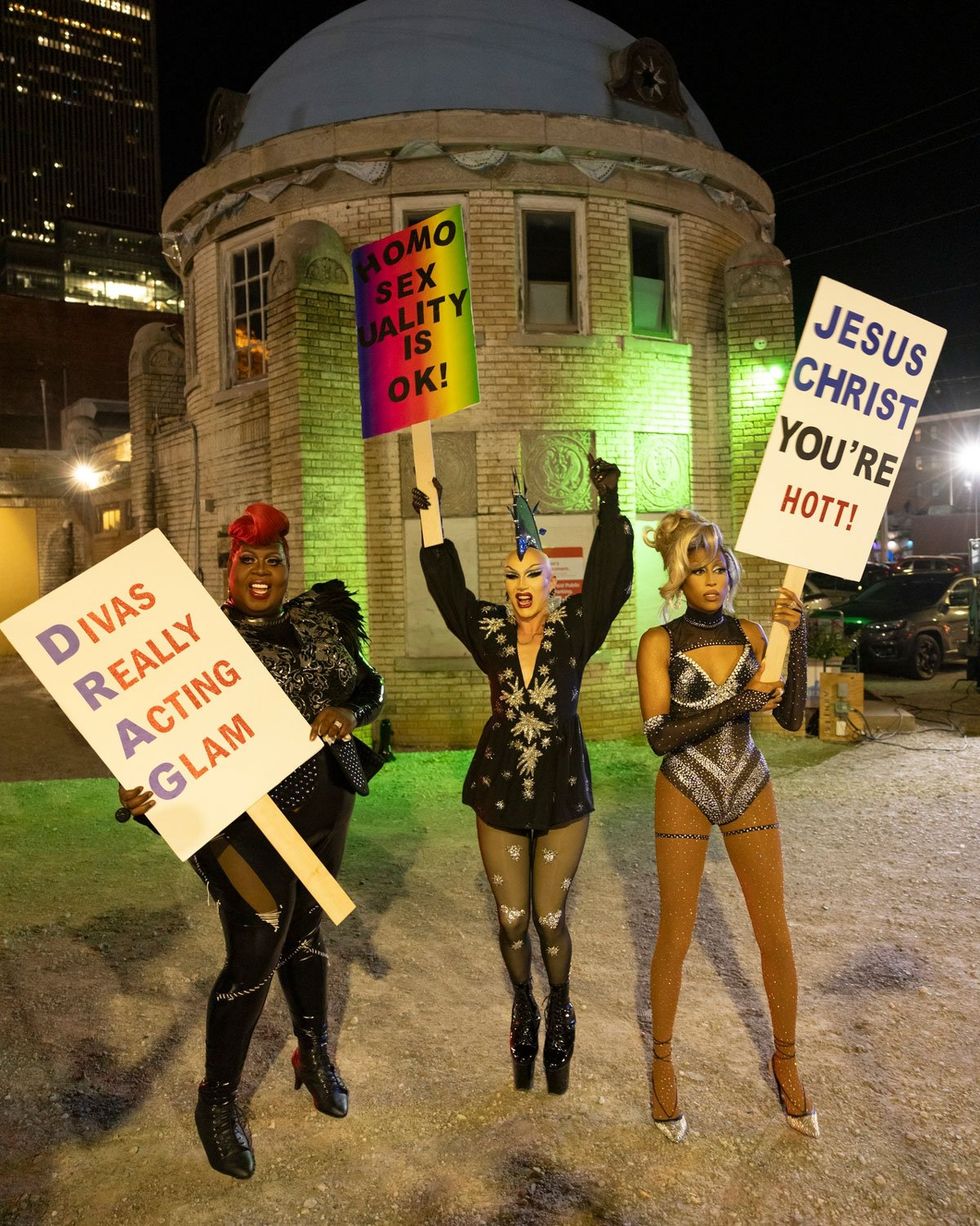 Greg Endries/HBO
Greg Endries/HBO

































































Charlie Kirk DID say stoning gay people was the 'perfect law' — and these other heinous quotes